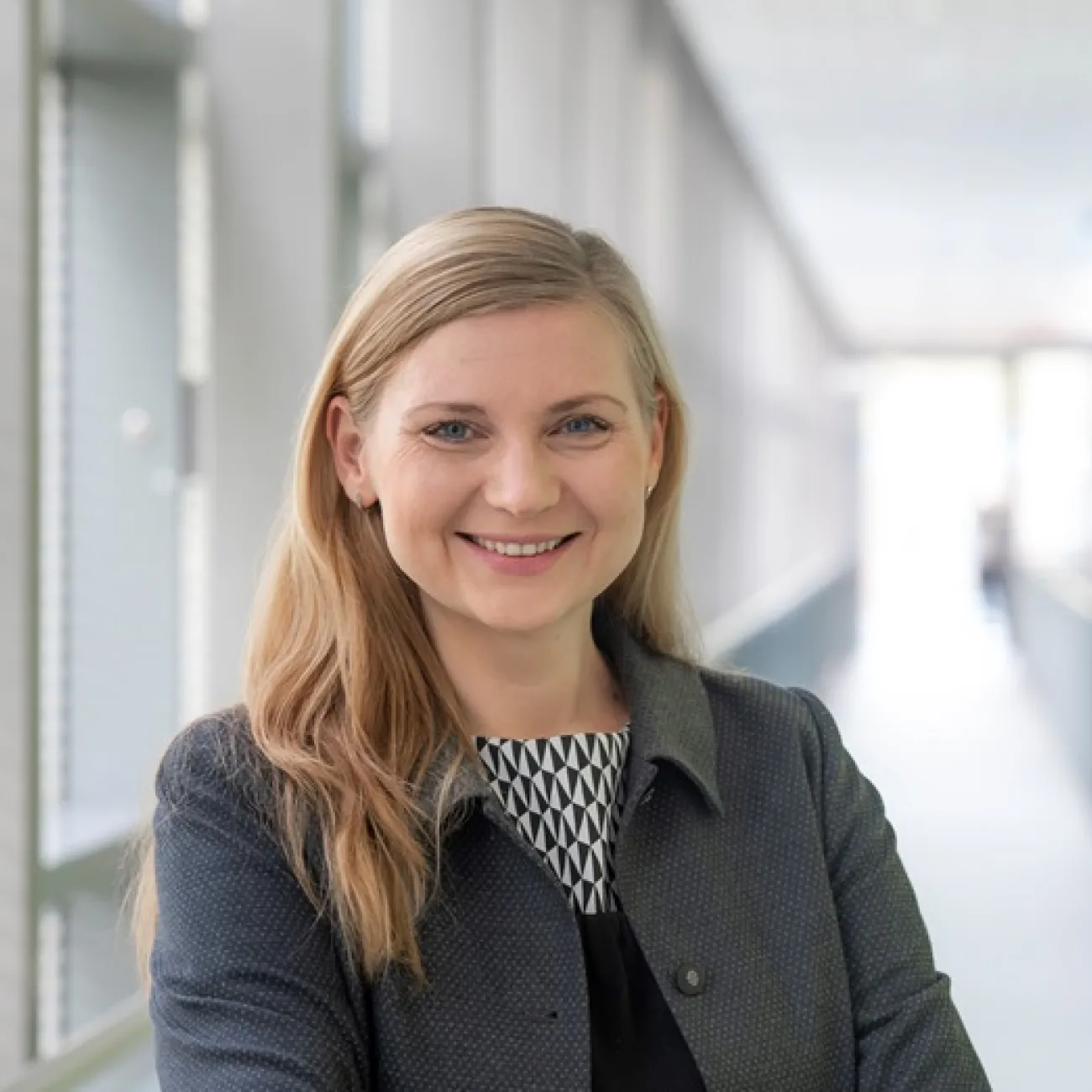About
Dr Gloria Kutscher is a Lecturer in Organisation Studies at Southampton Business School.
Gloria conducts research on how individuals and organizations make sense of and manage the boundaries and transitions between different spheres of work and life.
You can update this in Pure (opens in a new tab). Select ‘Edit profile’. Under the heading and then ‘Curriculum and research description’, select ‘Add profile information’. In the dropdown menu, select - ‘About’.
Write about yourself in the third person. Aim for 100 to 150 words covering the main points about who you are and what you currently do. Clear, simple language is best. You can include specialist or technical terms.
You’ll be able to add details about your research, publications, career and academic history to other sections of your staff profile.
Research
Research interests
- Boundary work
- Work-life boundaries
- Sensemaking
- Organizational Theory
- EDI
Current research
Adopting a social constructivist lens, Gloria's work explores how people navigate career junctures, organizational structures, and shifting work environments—particularly in hybrid, remote, precarious, and extreme contexts. She is especially committed to uncovering the often-invisible experiences of blue-collar and minority workers, and to understanding how personal and organizational practices contribute to growth and positive social change. Gloria's research contributes to management theories on boundary work, sensemaking, organizational space, and socialization, and increasingly draws on longitudinal, ethnographic, and grounded methods to capture dynamic processes over time. Understanding how individuals and organizations manage boundaries and transitions is key to moving beyond short-sighted research focused only on external shocks and short-term challenges. By examining long-term developments, her work reveals how actors create opportunities for personal growth and positive social change. Ultimately, Gloria aims to produce research that advances theory while creating practical impact for underrepresented groups and evolving work realities.
You can update the information for this section in Pure (opens in a new tab).
Research groups
Any research groups you belong to will automatically appear on your profile. Speak to your line manager if these are incorrect. Please do not raise a ticket in Ask HR.
Research interests
Add up to 5 research interests. The first 3 will appear in your staff profile next to your name. The full list will appear on your research page. Keep these brief and focus on the keywords people may use when searching for your work. Use a different line for each one.
In Pure (opens in a new tab), select ‘Edit profile’. Under the heading 'Curriculum and research description', select 'Add profile information'. In the dropdown menu, select 'Research interests: use separate lines'.
Current research
Update this in Pure (opens in a new tab). Select ‘Edit profile’ and then ‘Curriculum and research description - Current research’.
Describe your current research in 100 to 200 words. Write in the third person. Include broad key terms to help people discover your work, for example, “sustainability” or “fashion textiles”.
Research projects
Research Council funded projects will automatically appear here. The active project name is taken from the finance system.
Publications
Pagination
Public outputs that list you as an author will appear here, once they’re validated by the ePrints Team. If you’re missing any outputs that you’ve added to Pure, they may be waiting for validation.
Supervision
A list of your current and past PhD students.
This section will only display on your public profile if content has been added.
Contact your Faculty Operating Service team to update PhD students you supervise and any you’ve previously supervised. Making this information available will help potential PhD applicants to find you.
Teaching
A short description of your teaching interests and responsibilities.
This section will only display on your public profile if you’ve added content.
You can update your teaching description in Pure (opens in a new tab). Select ‘Edit profile’. Under the heading and then ‘Curriculum and research description’ , select ‘Add profile information’. In the dropdown menu, select – ‘Teaching Interests’. Describe your teaching interests and your current responsibilities. Aim for 200 words maximum.
Courses and modules
Contact the Curriculum and Quality Assurance (CQA) team for your faculty to update this section.
External roles and responsibilities
These are the public-facing activities you’d like people to know about.
This section will only display on your public profile if you’ve added content.
You can update your external roles and responsibilities in Pure (opens in a new tab). Select ‘+ Add content’ and then ‘Activity’, your ‘Personal’ tab and then ‘Activities’. Choose which activities you want to show on your public profile.
You can hide activities from your public profile. Set the visibility as 'Backend' to only show this information within Pure, or 'Confidential' to make it visible only to you.
Biography
Before joining Southampton Business School, Gloria was a postdoctoral researcher in the Department of Management Studies at Aalto University School of Business.
Prior to coming to Aalto, Gloria completed her PhD in Management at WU Vienna in 2018, and was a Faculty member at WU’s Department of Management.
You can update your biography section in Pure (opens in a new tab). Select your ‘Personal’ tab then ‘Edit profile’. Under the heading, and ‘Curriculum and research description’, select ‘Add profile information’. In the dropdown menu, select - ‘Biography’. Aim for no more than 400 words.
This section will only appear if you enter the information into Pure (opens in a new tab).
Prizes
You can update this section in Pure (opens in a new tab). Select ‘+Add content’ and then ‘Prize’. using the ‘Prizes’ section.
You can choose to hide prizes from your public profile. Set the visibility as ‘Backend’ to only show this information within Pure, or ‘Confidential’ to make it visible only to you.
